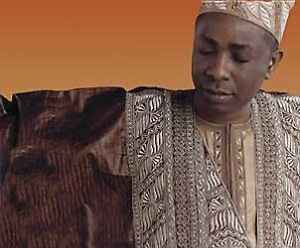muslim voices, youssou's message, sufi songs

"Why is music called the
divine art, while all other arts are not so called? We may certainly see God in
all arts and in all sciences, but in music alone we see God free from all forms
and thoughts. In every other art there is idolatry. Every thought, every word
has its form. Sound alone is free of form. Every word of poetry forms a picture
in our mind. Sound alone does not make any object appear before us."
So wrote Sufi master Hazrat Inayat
Khan in The Mysticism of Sound and Music (Shambala Publications). I was hipped
to that book by pianist Randy Weston, who claimed that he found it lying on a
curb, a chance encounter with formative wisdom. And the book has turned
up again and again in my conversations with musicians from many cultures and
traditions, especially in jazz circles. Sufi musicians have been among my
wisest teachers during the course of my career. Not least among them Senegalese
superstar singer and bandleader Youssou N'Dour, whose 2004 CD, Egypt
(Nonesuch), a declaration of Sufi identity, was devastating for both its beauty
and its political punch at a deeply troubled time.
N'Dour opens "Muslim Voices: Arts & Ideas" an innovative multi-disciplinary festival at several sites in New York, June 5-14. His Super étoile band plays BAM's Howard Gilman Opera House on the 5th. A fine and searching film chronicling his Egypt album and tour, "I Bring What I Love," screens there the following night, with a brief performance by N'Dour. It's a tough call though...
Blogroll
CultureGulf
be.jazz
rifftides
Alex Ross: The Rest is Noise
Dave Douglas: Greenleaf Music
birdlives
Lerterland
point of departure
Jazziz magazine
Jazz Journalists Association
Steve Smith: nightafternight
Willard Jenkins: Open Sky Jazz
music/food/justice in NOLA
Howard Mandel's JazzBeyondJazz
Stereophile:Fred Kaplan
